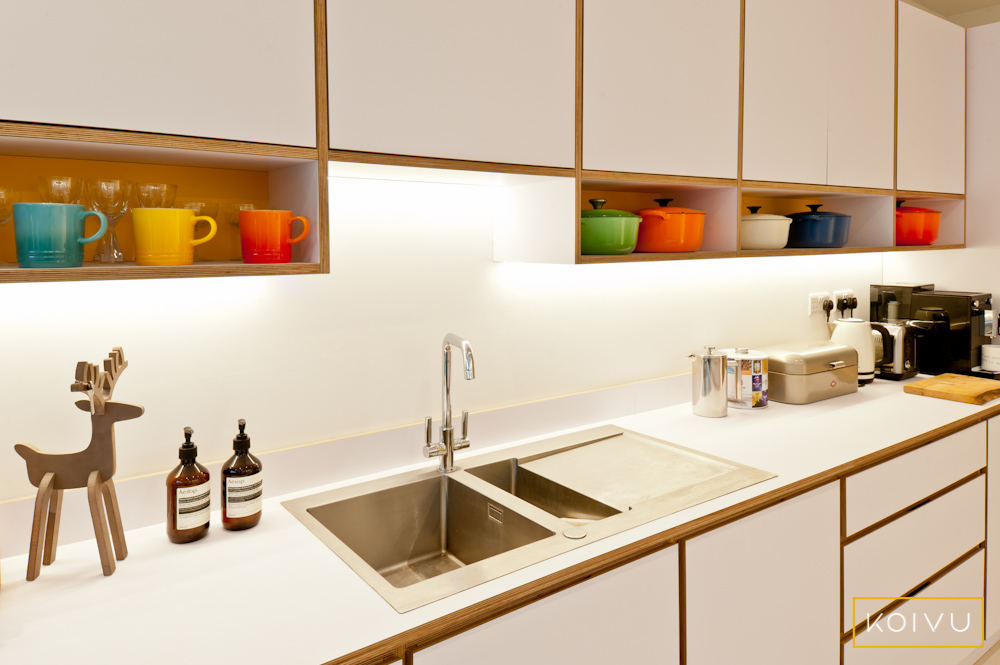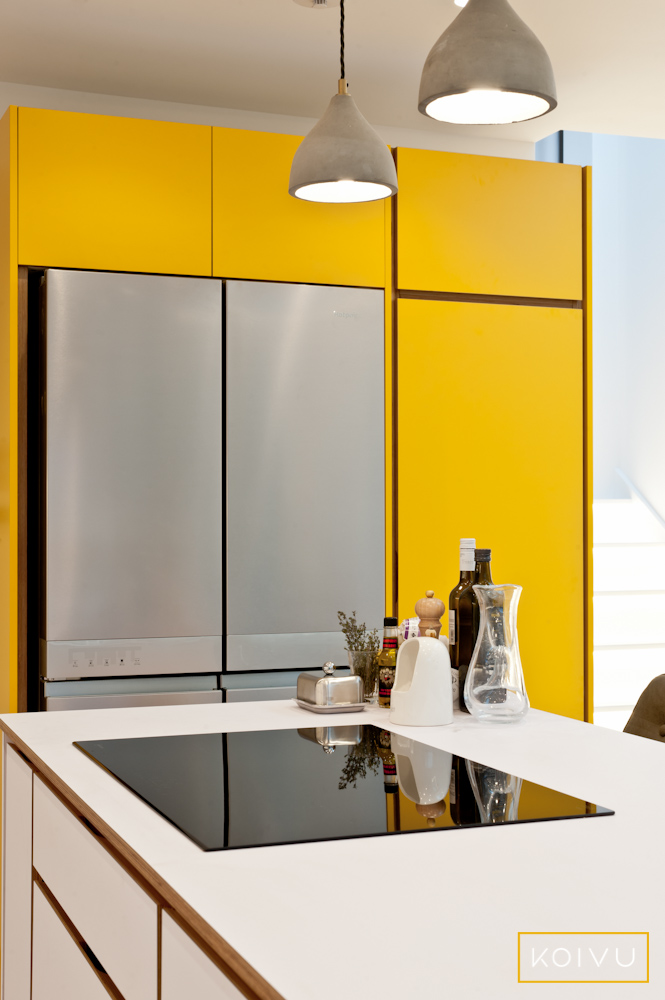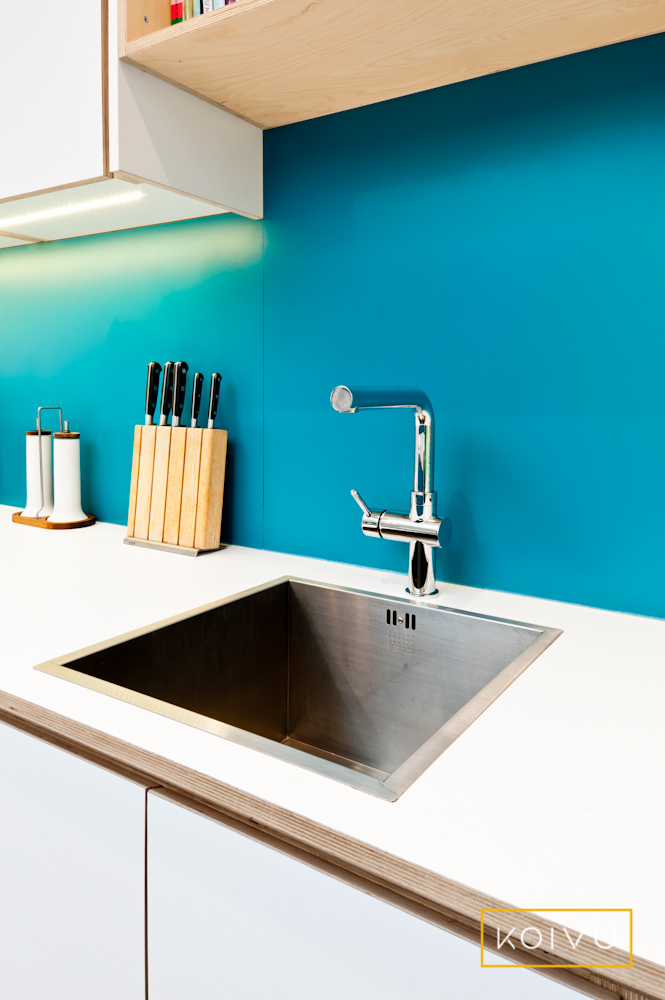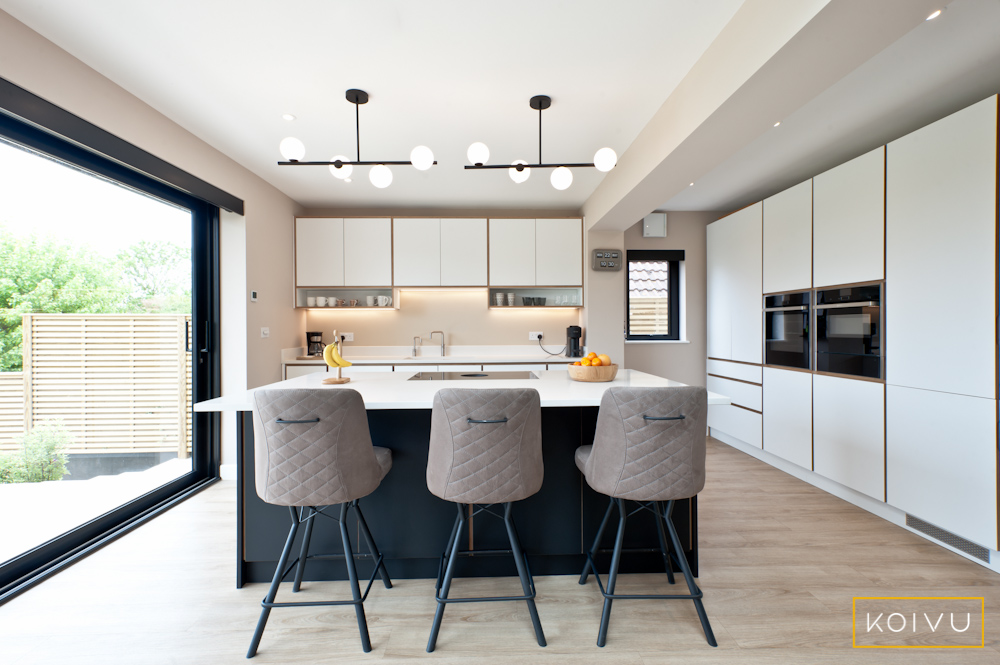Who says resolutions are just for January?
While resolutions are often associated with the turn of a new year, there’s no better time than now to make a commitment to a more sustainable lifestyle. And what better place to start than in the heart of your home —the kitchen. Here we’re exploring four kitchen-based resolutions for 2024. These not only benefit the environment but also contribute to a healthier and more conscious way of living.

1. Reconsider what you’re recycling
Start the year by revolutionizing your approach to recycling. Did you know that globally, only 9% of plastic is recycled? Or that recycling just one aluminum can, can save enough energy to power a 60 watt incandescent lightbulb for 20 hours?1 Make it a resolution to properly sort and recycle your kitchen waste. From glass to paper, to packaging and even batteries, do your research and find out what services are available in your local area.
Check out your local council website for information about what can be recycled alongside your normal waste collection processes. And keep an eye out for local independent stores and organisations that are involved in specific packaging returns schemes.
By putting some easy-to-follow processes in place and making sure the whole family understands what you’re trying to do, it’ll quickly become second nature. And just this one simple kitchen-based resolution will help to reduce landfill waste and contribute to a circular economy.
TIP: Step it up a level by learning what the recycling codes on your plastics mean, so you can make doubly sure you’re putting the right packing in the right place.
2. Commit to meal planning
Of course we understand you run a busy household, with family members coming and going and a million different pulls on your time. But hear us out. There are many benefits to create a weekly meal plan and then sticking to it. Not least, reducing food waste.
By spending 10 minutes writing out your meals for the week, you can easily translate it into a shopping list. And even better, check the cupboards and fridge while you’re doing it. That way you’ll be able to use whatever you find there to inform your meal choices for the coming days. And while you’re shopping don’t forget to try to make a few easy swaps for packaging free items where possible.
If this seems like an impossible task, start slowly, making the effort to do just a few days at a time. You’ll soon begin to enjoy the reduced mental load that comes with knowing what’s for dinner and knowing you have all the ingredients.
TIP: Make meal planning easier by creating a list of favourite dishes and add to it as you experiment with new ones. Get the family involved in the choice, and why not create daily themes to make decision making easier? Perhaps Tuesday is pasta day, Friday fish, or Wednesday BBQ…yum!

3. Reduce meat consumption
A 2021 study found that, ‘Meat accounts for nearly 60% of all greenhouse gases from food production.2’ So why not challenge yourself to incorporate more plant-based meals into your weekly routine?
Don’t worry, we’re not suggesting a whole-scale move to veganism. But why not start by adding a few more vegetarian meals to your repertoire and see how your family gets on with them? It’s a great way to start to educate your kids on the benefits of reducing meat consumption and what a healthy, balanced diet looks like. Just cutting meat out one to two days a week can be a great start point, and have a very real benefit to the environment around us.
TIP: If you have kids, or indeed a partner, who is sceptical about reducing meat, why not choose a favourite meal and re-make it with a meat substitute? Failing that, try swapping out half of the meat content of a bolognaise or chilli, replacing with lentils or extra veggies. Healthier, more nutritious and better for the planet. It’s a win, win, win.

4. Reduce power and water consumption
Simple changes in your kitchen habits can contribute a surprising amount to energy and water savings. Both for the climate and for your pocket. Only this week, Water UK have reported that water bills will rise above inflation in April…again! Luckily there are plenty of small things you can do to become more mindful of both your water use and your power use. So why not start to make a few changes in 2024?
Water
Running a tap uses over 6 litres of water a minute. This means that anything that involves rinsing – vegetables, lentils, plates etc. is wasting a surprising amount of water. The first step is simply to be mindful of this and use only the minimum you need. Next, get in the habit of capturing that water and using it for other things, where possible. Chuck it on the garden, or use it to water your indoor plants, for example.
And don’t worry too much about running your dishwasher, as long as you’ve made sure it’s full. It’s significantly more efficient to run the dishwasher than it is to run enough tap water to wash an equivalent load. And while we’re on the subject, try to get out of the habit of rinsing those plates before you put them in. Scrape excess food into a food bin so you don’t clog up the drains by all means. But modern dishwashers and good quality detergent should mean squeaky clean plates regardless of what’s on them.
Power
Power-wise, turn off smaller appliances (particularly those with digital displays) when you’re not using them. Or use more energy efficient alternatives like an air fryer or slow cooker, where the recipe allows. Switch to LED lighting and turn off any light circuits you don’t need, depending on where you’re working or eating in the room. If you use a lot of hot water, for tea, coffee and cooking, consider investing in a more eco-friendly boiling water tap. Or alternatively, boil only the amount of water you need in that power-hungry kettle.
TIP: Invest in energy-efficient appliances and find out whether your power company offers lower rates for energy use at off peak times. You might find that by running your dishwasher or washing machine after 7pm, or batch cooking on a Sunday, for example, you can save a significant amount of money on your bill and reduce the load on the national grid too.
Are you tempted to give any of these kitchen-based resolutions a try?
Don’t feel you have to make huge changes, or you’ll struggle to make them stick. Just pick a couple of small things that you think you can make a habit out of and take it from there. Whether you’re reducing waste, conserving resources, or embracing plant-based eating, the collective impact of these choices is significant.
And when it comes to designing a kitchen that aligns with your eco-friendly goals, Koivu offers sustainable advice and stylish solutions to support your journey toward a greener lifestyle.

If you’re getting ready to invest in a new kitchen and would like to incorporate some of these kitchen-based resolutions at the same time, get in touch to find out more about making a planet-friendly choice.




